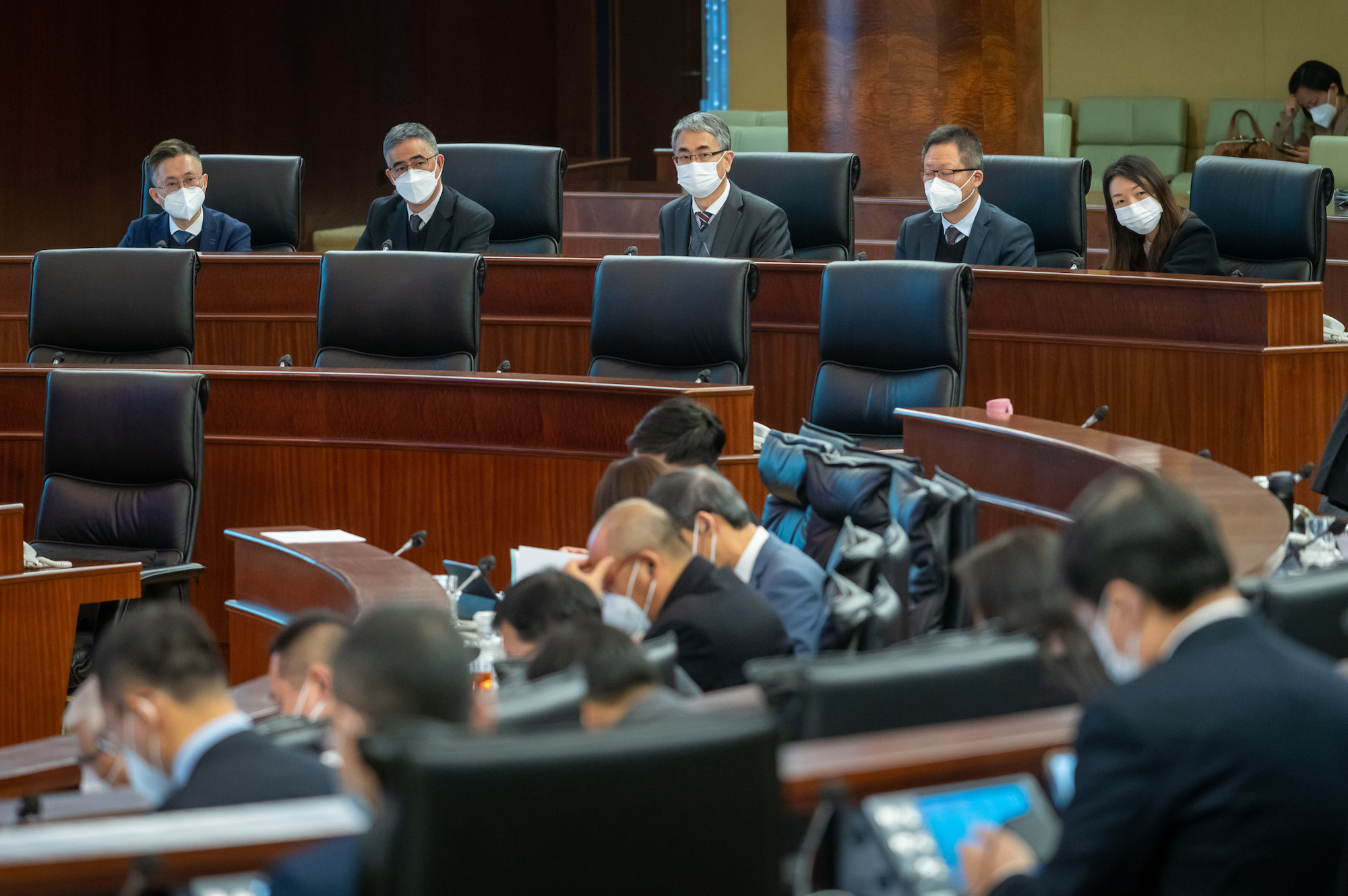Lawmakers pass outline of Macao state secrets bill Link copied
Law to cover government’s decision-making, socioeconomic development, scientific and technological development and criminal investigations by the police.

Lawmakers yesterday passed the outline of a bill defining state secrets and regulating their protection in the Macao Special Administrative Region (MSAR).
The current version of Macao’s national security law, Law 2/2009, punishes the theft of state secrets.
The national security law’s amendment bill, which is currently being reviewed article-by-article by one of the legislature’s standing committees after its outline was passed by a plenary session last month, proposes to change the name of the crime of “theft of state secrets”, as defined by Article 5 of the current version of Law 2/2009, to “violation of state secrets”.
In addition, the Law 2/2009 amendment bill also proposes that state secrets are to be regulated by a new specific piece of legislation of the MSAR.
Secretary for Administration and Justice André Cheong Weng Chon introduced the outline of the bill on the protection of state secrets during a plenary session in the Legislative Assembly’s hemicycle yesterday.
Article 5 of Law 2/2009 defines state secrets, which refer to documents, information or objects that must be kept secret and are classified as such, in the fields of national defence, foreign relations, or other issues concerning the relationships between the central authorities and the MSAR as set out in the MSAR Basic Law.
In addition, Article 5 of Law 2/2009 also stipulates that the judiciary of the MSAR can ask Macao’s chief executive, or the Central People’s Government through the chief executive, to provide a document certifying whether the relevant documents, information or objects are classified as state secrets.
The national security law’s amendment bill proposes to remove the definition of state secrets laid out by the law’s current version and proposes that state secrets are to be regulated by a specific piece of legislation, that is, the bill which was passed by lawmakers yesterday.
During yesterday’s plenary session, Cheong pointed out that the Law 2/2009 amendment bill proposes that state secrets are to be defined and regulated by a specific piece of legislation. Consequently, Cheong said, the MSAR government has now completed drafting the bill on the protection of state secrets with the aim of ensuring the adequate and strict protection of state secrets in the MSAR.
According to Cheong, the bill proposes to define state secrets as secret matters concerning national security and interests classified by the central authorities in compliance with the nation’s laws, or by Macao’s chief executive in compliance with this law (that is, the bill on the protection of state secrets), the knowledge of which is limited to certain groups of people during a certain period of time.
According to the bill, Macao’s chief executive will be entitled to classify a string of various matters that occur or originate from the MSAR as state secrets if their disclosure may jeopardise national security and interest, such as secret matters of the MSAR government’s important decision-making, socioeconomic development, scientific and technological development, activities safeguarding national security and criminal investigations by the police.
According to Cheong, the bill also proposes that classified state secrets can only be kept secret for a maximum of 30 years, depending on the nature and characteristics of the respective secret matters.
After yesterday’s passage of its outline, the bill will be passed to one of the legislature’s standing committees for an article-by-article review, after which it will be resubmitted to another plenary session for its second and final plenary debate and vote, The Macau Post Daily reported.